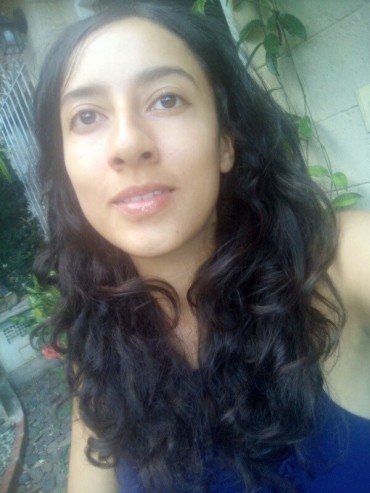Hay un Hoyo en la Orilla del Mar
Have you ever wanted to say “there is” or “there are” in Spanish, and you don’t know how to? Have you ever wanted to say “There are places I remember”, and you realize you just get stuck? Well, let us tell you that there is one magic word that will solve this problem quicker than you thought. This word is the unparalleled “hay”. And no, it’s not the grass that has been mown and dried to be used as fodder in the ranch. The “h” is silent, with this and the two letters you have in front of, you’ll have a sound mostly like the word “eye” in English. This verb will be used with the indefinite articles un, una, unos, unas, with adjectives and indefinite pronouns, numbers, and with no articles. Here there are some examples:
| Verb Haber | Example | English |
|---|---|---|
| Impersonal Hay | Hay una fiesta esta noche en el parque Santo Domingo. | There is a party tonight at Santo Domingo park. |
| Hay tres gatos en mi cuarto. | There are three cats in my room. | |
| Hay un incendio en la casa de la vecina. | There is a fire at the neighbor's house. | |
| Hay mucha gente en este lugar. | There are a lot of people in this place. | |
| En Colombia hay cultivos de café por todas partes. | In Colombia there are coffee crops everywhere. |
Haber Conjugations
Considering this, you might also want to say “there was” or “there were” (hubo, había), “there will be” (habrá) or “there would be” (habría). In that case, you will only need to use the verb Haber in the third-person singular, you will never need the plural form. Like this, for example:
| Verb Haber | Example | English | |
|---|---|---|---|
| Indefinite Past | Hubo | Hubo 4 accidentes fatales en la ruta 9 el fin de semana pasado. Hubo un problema con el servidor. | There were 4 fatal accidents on route 9 last weekend. There was a problem with the server. |
| Imperfect Past | Había | En ese tiempo la vida era tranquila, había tanta paz. | Back then life was so calm, there was so much peace. |
| Future | Habrá | Es definitivo. Habrá cura para el VIH. | It is final. There will be a cure for HIV. |
| Conditional | Habría | Si la ley no existiera, habría caos y anarquía. | If law didn’t exist, there would be chaos and anarchy. |
How to Use the Verb Haber
On the other hand, a fast and easy way to express that something is necessary or convenient is the word “hay” plus the word “que”, to say mean “it’s necessary to”. You could, of course, say in Spanish “es necesario” or “es conveniente” too, but in case you don’t want to spend so much time doing so, or in case you want to convey the message as fast as possible, you could say directly: “hay que”. This is a shortcut to talk about things that must happen, that are mandatory, urgent, or necessary in a more impersonal and natural way. For example:
Another and very important way to use the verb Haber, it’s as an auxiliary to talk about what in English is called the ‘Present Perfect’ or ‘Pretérito Perfecto’ in Spanish. This is a tense used to talk about actions carried out in a space of time that covers the past and the present, things that happened before and are still happening now. Also, actions performed in the past that give rise to a situation or result that has implications in the present or in the future are included in this category. The structure goes like this:
[Subject + Verb Haber (Conjugated) + Past Participle + Complement]
For example:
- Ha muerto en el desierto de la Tatacoa. – He has died in the Tatacoa desert.
- He dormido durante el eclipse. – I have slept through the eclipse.
- Hemos encontrado 40 figuras del arte precolombino. – We have found 40 figures of pre-Columbian art.
- ¿Por cuánto tiempo has vivido en Tucumán? – For how long have you lived in Tucuman?
Haber – Quiz/Worksheet
Exercise 1
Now that we have already seen some examples, let’s practice with this writing task, using the verb Haber. In these exercises, you have to fill in the blanks with the correct form of the verb Haber, according to the context:
1. Siempre ______ preparado el jugo de frutas así, con leche. – We have always made the fruit juice like this, with milk.
2. ____ ____ encontrar el culpable cuanto antes. – It’s necessary to find the culprit as soon as possible.
3. Anoche _____ un corte eléctrico en mi barrio, por lo cual tuvimos que prender algunas velas.- Last night there was a power outage in my neighborhood, so we had to light some candles.
4. En aquella época nos gustaba tanto bailar, _____ música hasta en los rincones más recónditos de la ciudad. – At that time we liked to dance so much, there was music even in the most hidden nooks of the city.
5. ¡Siempre _____ tantas razones para reciclar! Empecemos ahora – There will always be so many reasons to recycle! Let’s start now
Now let’s make it more interesting! Let’s think about what we just learned, using the verb “Haber”, and let’s apply it to what is actually happening in our lives. You can write, record, or even share the answers to these questions with a Spanish-speaking tutor or friend.
EXERCISE 2
Answer the following questions:
- ¿Cuántas plantas/televisores/mascotas/ventanas/libros hay en tu casa?
- ¿Qué hay que hacer hoy?
- ¿Qué había en la casa donde pasaste tu infancia?
- ¿Qué lugares has visitado?
- ¿Qué es algo increíble que has hecho en tu vida?
The Answers
EXERCISE 1
Let’s see what the answers to the first questions are! Don’t worry if you had a hard time or if you got some of them wrong, and even less if it’s your first time, try to practice daily!
1. hemos
2. hay que
3. hubo
4. había
5. habrá
Fun Fact
There is a very well-known song (and game, let’s better say a tongue twister) called “Hay un hoyo”, in English, “There is a hole”. You can read it completely on this link:
You can also find the song by Kinito Mendez on YouTube here:
Hay un hoyo en la orilla del mar
Sing, dance, and know a little bit more about how we celebrate in Latin American culture.
About the Author:

Specializations: Spanish Tutors on Zoom
Bio: I’m Sandra Marulanda, I was born in Colombia, and I’m currently living in Medellín. I'm an anthropologist, passionate about literature, arts, dance and music. Not only that, but I finished my master's degree and got a result of 7 on the IELTS Test for English proficiency. With me, you’ll get not only the mastery of Spanish (in speaking, writing, listening, and reading) but you’ll have much more than a common grammar-based language lesson, you'll also have an experience founded on "content-based learning" in which we’ll analyze and reflect about social and cultural issues.
View my Profile to Book a Private Spanish Lesson
Other articles: 35 Vegetables Translated to Spanish | The Ultimate Master List



